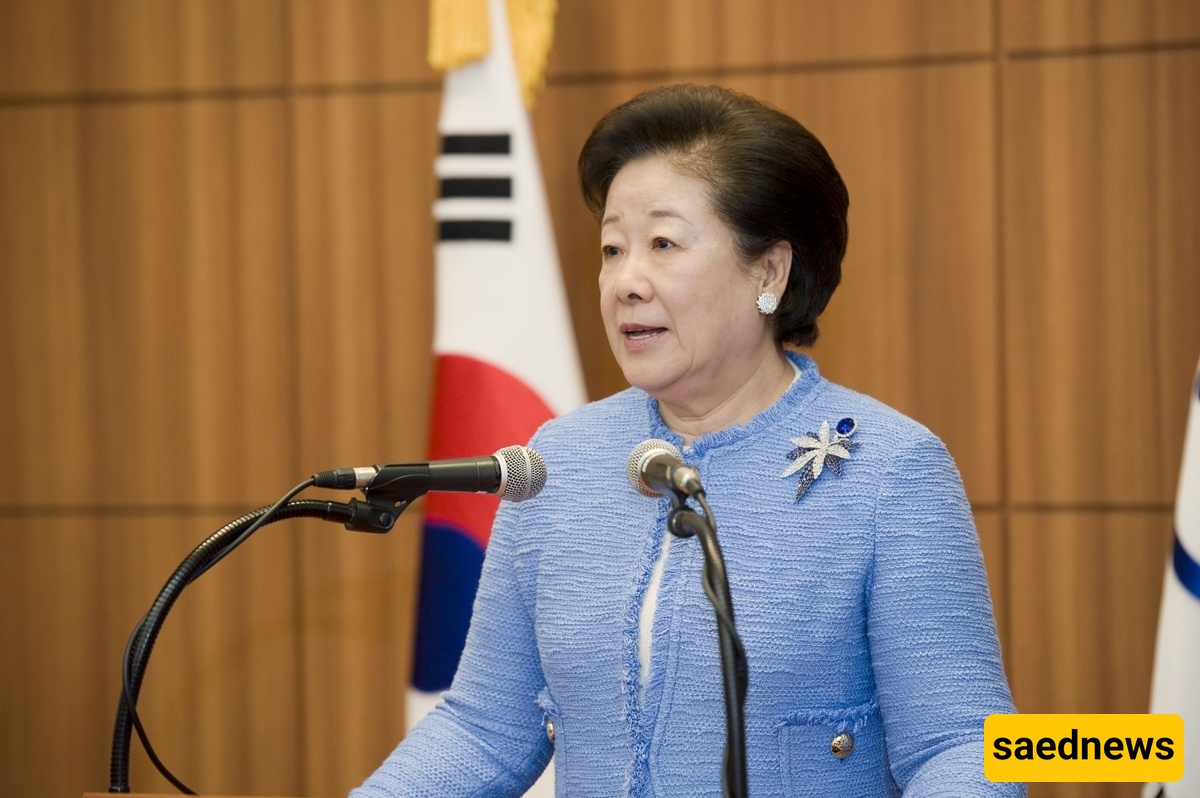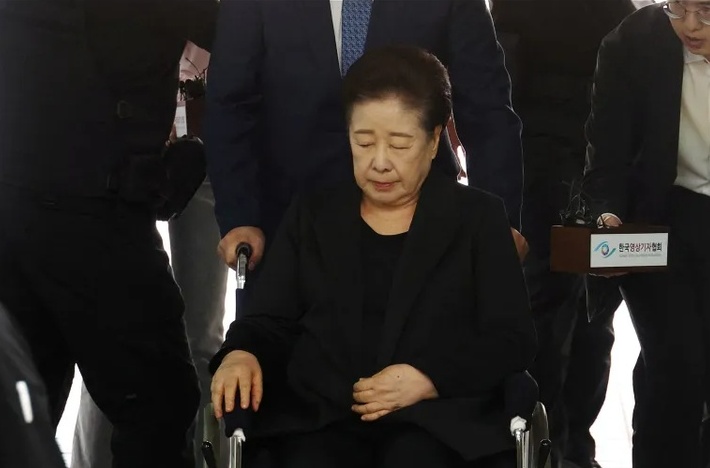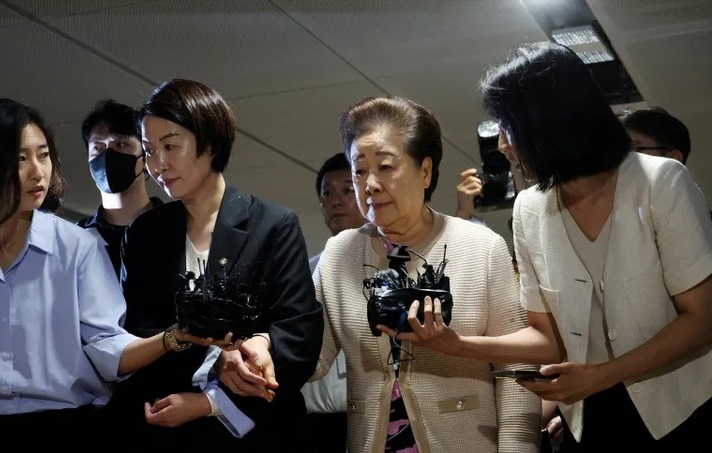SAEDNEWS: Han Hak-ja, the leader of South Korea’s controversial Unification Church, faces possible arrest over bribery and corruption allegations tied to former First Lady Kim Keon Hee, in a scandal that has shaken Seoul’s political and religious elite.

On Monday morning, South Korea’s Seoul Central District Court became the stage for one of the country’s most sensational trials in recent years. Han Hak-ja, leader of the Unification Church and widow of its founder Moon Sun-myung, appeared in a wheelchair, silent as reporters shouted questions about allegations of bribery and corruption.
The court is now weighing whether to issue an arrest warrant that could see the 78-year-old religious leader imprisoned.

At the heart of the case is an alleged 100 million won ($72,400) bribe given in 2022 to ruling party lawmaker Kweon Seong-dong. Prosecutors say Han conspired with a church official to secure political favors if then-candidate Yoon Suk-yeol won the presidency—which he did.
Han is also accused of embezzling church funds to purchase luxury handbags and a necklace for Yoon’s wife, Kim Keon Hee, in an attempt to curry favor. Both Han and Kim deny the allegations.
If the warrant is approved, Han could be jailed immediately.
This is not just about one court hearing. A special prosecutor is also investigating whether Han personally coordinated with Kim Keon Hee to deliver the bribes and advance the church’s business interests.
The fact that South Korea’s former first lady and a globally known religious leader are being investigated in tandem has turned this into a case with far-reaching political and cultural consequences.

To her followers, Han Hak-ja is “True Mother”, the spiritual counterpart to her late husband, Moon Sun-myung, who founded the Unification Church in 1954.
The church, officially called the Family Federation for World Peace and Unification, is infamous for its mass weddings, strict communal culture, and its claim that Moon was the second coming of Jesus Christ. Critics have long derided members as “Moonies,” pointing to what they call cult-like practices.
The organization today operates globally, controlling businesses in construction, healthcare, and media.
The scandal unfolds at a time of deep political crisis in South Korea. Former President Yoon Suk-yeol was impeached in April after an attempt to impose martial law backfired. He now sits in detention facing charges of insurrection.
His wife, Kim Keon Hee, is also detained and set to stand trial this week for separate corruption charges. The accusations that she may have received gifts from Han only deepen the sense of a collapsing political dynasty.
Han has denied giving luxury gifts to Kim, while Kim herself insists she never received bribes from the church. Supporters of the Unification Church argue that the scandal is politically motivated, targeting their faith community.
But critics see the case as yet another example of how money, power, and religion collide in South Korea’s turbulent political landscape.

